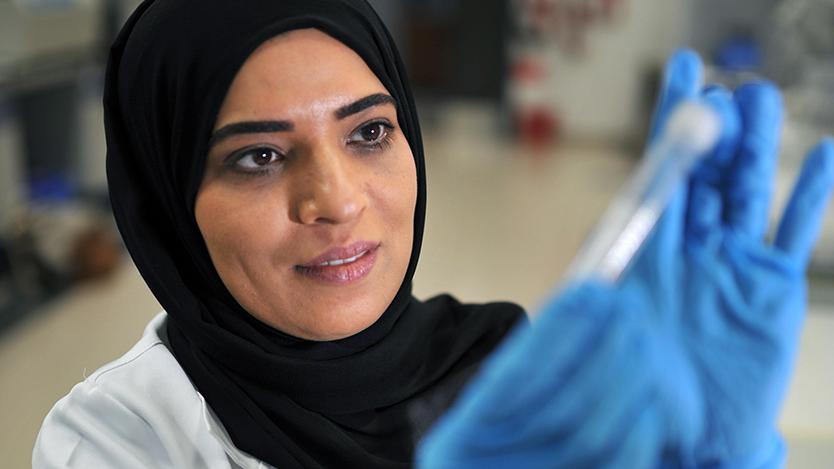To the West, the disparity in the involvement of girls and women in Science, Technology, Engineering, and Mathematics (STEM) is a major problem, with more effort than ever being put by schools, universities, and community into encouraging more representation of females in STEM.
International news outlets deal with the issue as if it were global, but here in the Arab World, contrary to what many would believe, it is different. Things in the Middle East are the exact opposite with a 34-57% of STEM graduates in the Arab World being women according to one report by UNESCO; a figure so much higher than that seen across Europe and the United States.

Women in Qatar, Jordan, Egypt, and the UAE have better test results in mathematics than men, shattering a wide-held belief that females in the Middle East are confined to the field of household chores. Women in Jordan, in particular, make up 64% of students in the departments of natural science, medicine, dentistry, and pharmacy, while in the Gulf area, they comprise 60% of engineering students, compared with only 30% in the U.S. and Europe.
In her latest book “Five Scarves”, the prominent Arab Writer, Rana Dajani, a self-described hijab-wearing Microbiologist and Associate Professor at the Hashemite University in Jordan, is smashing stereotypes about women in the Middle East.

She told Times Higher Education, “Despite a lot of stereotyping and propaganda; in other countries, about women and science in our part of the world, in Jordan and the; Arab, Middle East, but also South-East Asia and even Africa, girls are interested in going into STEM, and parents and the community actually encourage them.”
Dr. Dajani believes that in Arab countries women are not intimidated about their passion for science as many seem to be in the West. In fact, it is the complete opposite as here women take pride in being a mathematician or a botanist.

Another misconception she will be addressing in her book is that the STEM field is underdeveloped in the Arab World. However, a look at the UAE’s space program, Egypt’s universities, or Saudi’s educational institutes is enough to discredit it.
Dajani believes that there has been a huge improvement in the quality of science and that countries of the Arab world are willing to do more. We will just have to wait and see!



